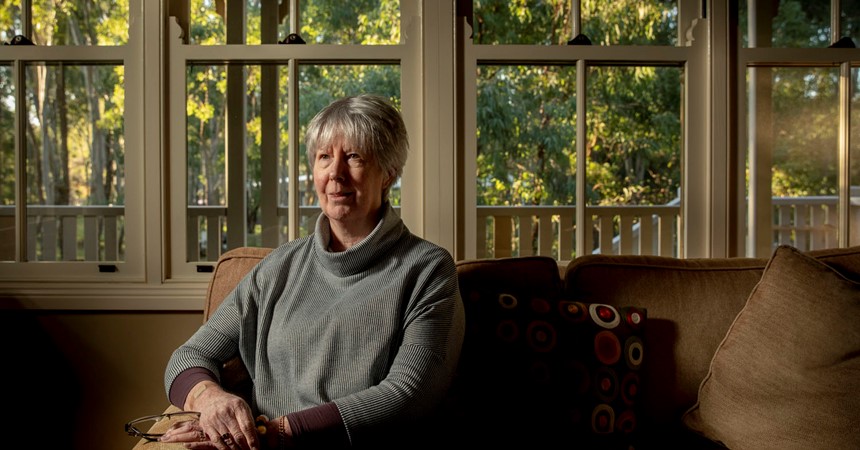Helen Belcher is a member of the Council for Mission, which she co-chairs, and a member of the Diocese’s Synod Working Party. Council for Mission is the peak advisory body to the bishop on pastoral matters and also the body sponsoring the Synod.
“COVID-19 has dispelled the myth that old people can’t use technology,” says Dr Belcher. “Some people may be reluctant to use the technology, because they’re afraid, but if they’re given some guidance, they’re willing to take it up.
“When older people and grandparents were unable to see their children and grandchildren, they became adept at using social technology. Some of them laugh about their efforts to use the technology, but they did start using it.”
The Council for Mission had already identified the importance of a communication strategy leading up to the Synod. “We need to be able to communicate with the Diocese,” says Dr Belcher “And it ties in with the Plenary Council.” COVID-19 further strengthened this need.
Dr Belcher worships at Campbells Hill and is a reader, cantor and special minister. As with other congregations, COVID-19 resulted in Chisholm Pastoral Region losing access to Mass.
“It became clear that we were Mass-centric or Eucharist-centric,” says Dr Belcher. “Once we lost that access to the church building, the physical contact, we had problems.”
Live-streaming has addressed the issue, but this only underscores Catholic communities’ reliance on attending Mass. Chisholm Regional Pastoral Council raised the question: are there other ways of creating and connecting to community? It surveyed its parishioners on their needs, and how they might be addressed.
Chisholm stretches across 10 Mass centres, and the survey was conducted over two weeks. The responses indicated an appetite for the council to look at online ways of “being community” and “actually worshipping”. As a result, Fr Michael Kelly is setting up online scripture and Lectio Divina sessions, walking people through how they might undertake these practices. He will also advise on conducting a home retreat and contemplation. Another group indicated an interest in online rosary and attempts are in progress to set that up.
Other respondents indicated their willingness to assist, such as delivering bulletins or helping people connect to the internet.
“The danger is that now we are walking back from COVID, that some of this impetus will be lost,” says Dr Belcher. “The survey generated quite a bit of material and gave us a lot to think about. The Regional Pastoral Council now has a set of recommendations about how it might work into the future.
“I would be sorry if we reverted to things as they were before coronavirus. We need to continue the impetus because it ties in with the thrust of the Synod and the thrust of the Plenary Council. We do need to do things differently. We need to think differently about how we connect with young people, with women, with First Nations people.”
Clearly Chisholm extracted a lot more out of the survey than it might actually have expected.
“In launching the survey, we were concerned about those who were not internet savvy, so the survey was available to them in hard copy,” says Dr Belcher. “We haven’t solved the problem of how you connect if you don’t have the internet, but what interested me was if people really wanted to make a comment, they found a way of doing it.”
Some delivered their responses in hard copy, others had friends or family scan them and send them through. All the efforts piqued the interest of Dr Belcher.
“There is definitely a digital divide, and that divide is based on age, but also on socio-economic status and culture as well,” she says. “But there have been some positives for the Church from coronavirus, some busting of myths around the use of technology, and I think it has presented an opportunity to do things in a different way.
“We can build on things we’ve found out. And that’s not to underscore the need for face-to-face, because I think it is really important we maintain face-to-face. But if we were faced with this situation again, or if we have people who are living remotely and they need to connect into a community, then we can actually do it.”






















































































